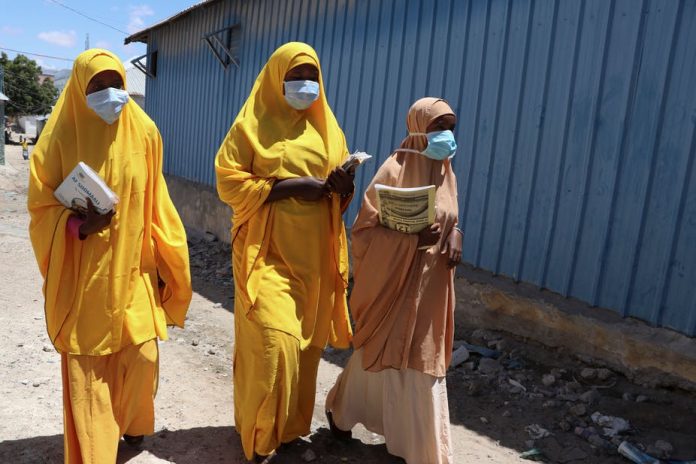In the second week of March the World Health Organisation (WHO) declared COVID-19 a pandemic. By mid-March the disease had spread rapidly in many countries around the world.
Governments are taking drastic steps, including the complete lockdown of cities, as well as extensive health interventions to try and stem the disease which is caused by a new coronavirus called SARS-CoV-2.
There is still a great deal that’s not known about SARS-CoV-2. This limited scientific information has contributed to a slew of myths and misconceptions. Some claims being made are harmless. Others can be potentially dangerous.
We have identified nine misconceptions doing the rounds on social media in Africa and set out to counter them. The purpose of debunking these myths is to provide people with trusted information. And to provide people with valid scientifically backed answers which they can share on social media to counter the misinformation and disinformation out there.
Myth 1: SARS-CoV-2 does not affect Africans
Across the continent rumours have been rife that the virus does not affect black people. This was fuelled partly by the fact that a Cameroonian student in China, who was among the first people to contract the disease, responded well to treatment.
But there is no proof that melanin protects black people from the coronavirus. There is also no scientific evidence that African blood composition prevents Africans from contracting the coronavirus.
This misinformation persisted even after the deaths of high-profile black Africans, such as legendary Cameroonian musician Manu Dibango, and Zimbabwean media personality Zororo Makamba.
This myth is not limited to Africa. Twitter has recently been abuzz with claims of African-Americans being immune to coronavirus
Myth 2: SARS-CoV-2 cannot survive in Africa’s warm climate
This myth arose after research, which hadn’t been peer reviewed, pointed to temperature having a role in the survival of the virus. One of the most widely quoted sources was John Nicholls, a pathology professor at Hong Kong university who said that “in cold environments, there is longer virus survival than warm ones”.
This claim, however, was not based on verified research. It was nevertheless seized on as proof that the virus cannot thrive in Africa’s warm climate.
According to the WHO, the virus can be transmitted to all areas, event hot and humid countries.
The only continent that has no cases of COVID-19 is Antarctica. This could change.
Myth 3: Spray alcohol and chlorine all over your body
Using hand sanitisers that contain 60% or more of alcohol has been found to kill the coronavirus. But, there has been a myth that spraying alcohol and chlorine will kill the virus.
Alcohol and chlorine will not kill the virus if it has entered the body already.
Spraying alcohol all over your body can be harmful, particularly to your eyes and mouth. Importantly, the alcohol in the sanitiser is not the same as the alcohol that people drink. The latter ranges up to 40% while hand sanitisers need to be 60% and above. Read more…



